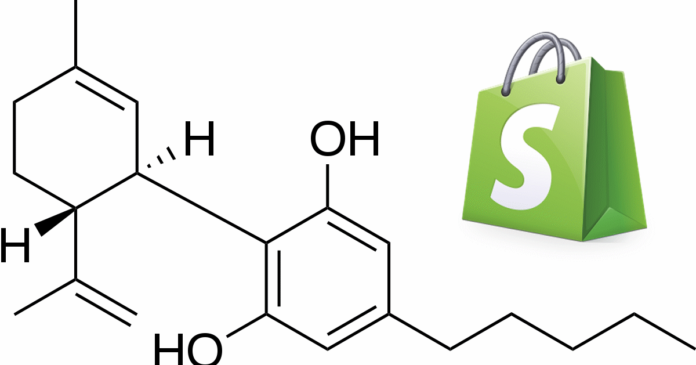Last week Shopify Inc. announced it would allow U.S.-based retailers to sell select hemp or hemp-derived CBD products via its commerce platform.
“Shopify has unmatched expertise in emerging industries, along with the resources merchants need to be successful in the fast-growing market of hemp-derived CBD products in the U.S.,” said Shopify Chief Operating Officers Harley Finkelstein.
Merchants will only be able to sell these products in select states, and where permitted by law. The company advises merchants should consult with an attorney before selling cannabidiol products on Shopify.
U.S merchants will be required to complete and submit an ‘Attestation for the Sale of Hemp and Hemp-Derived Products’ form, which outlines Shopify’s requirements in this regard.
“For example, in the attestation merchants must confirm that none of their hemp or hemp-derived products are marketed as having any medicinal or therapeutic benefit unless such claims have been approved by the FDA,” says the firm.
The FDA and FTC have been sending out warning letters to some businesses selling CBD products in relation to claims the agencies allege have been made.
While Shopify Payments are not available for hemp or CBD products currently, it has partnered with several integrated third-party payment gateways for payment processing – Authorize.net, DigiPay and eMerchant Brokers.
More on Shopify’s policies regarding the sale of CBD products can be found here.
Shopify began allowing Canadian merchants to sell CBD products via its platform last year.
The use of CBD in the USA is skyrocketing. Last month we reported on a poll indicating 14% of Americans use cannabidiol-based products. A report from BDS Analytics and Arcview Market Research released in May this year states the collective market for CBD sales in the USA could exceed $20 billion by 2024.
With just about every man and his dog either seeming to use or sell cannabidiol products, this is likely to push down prices – which is good news – but will also likely see increasing challenges in relation to quality.
In the UK, a recent study found an alarming incidence of CBD products not containing what’s on the label; and in some cases containing substances that shouldn’t be present, or at levels making them technically illegal.


